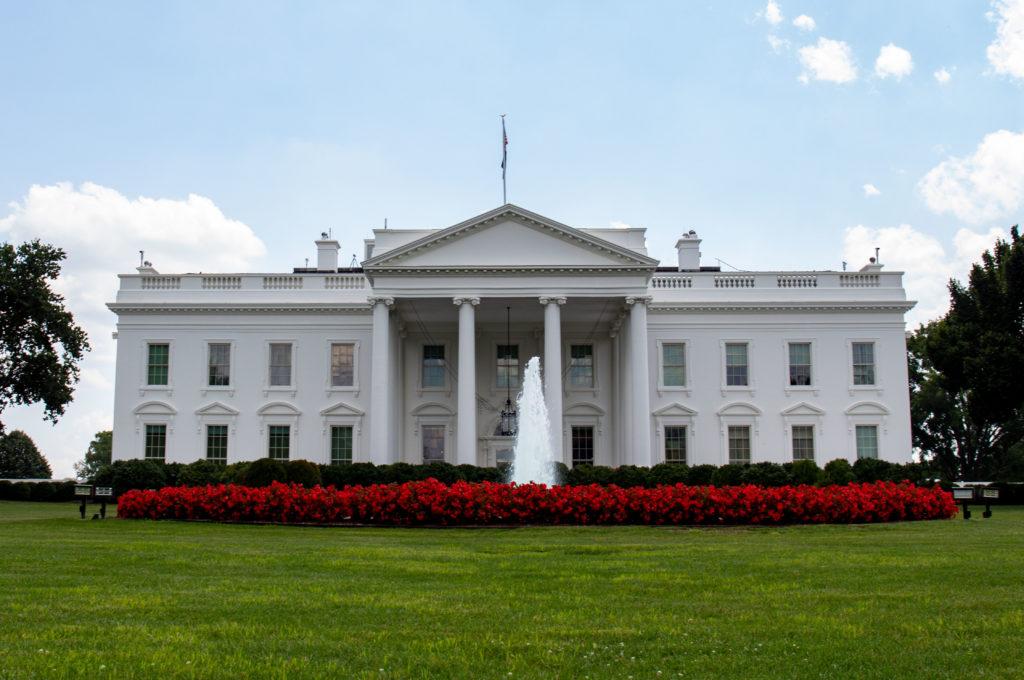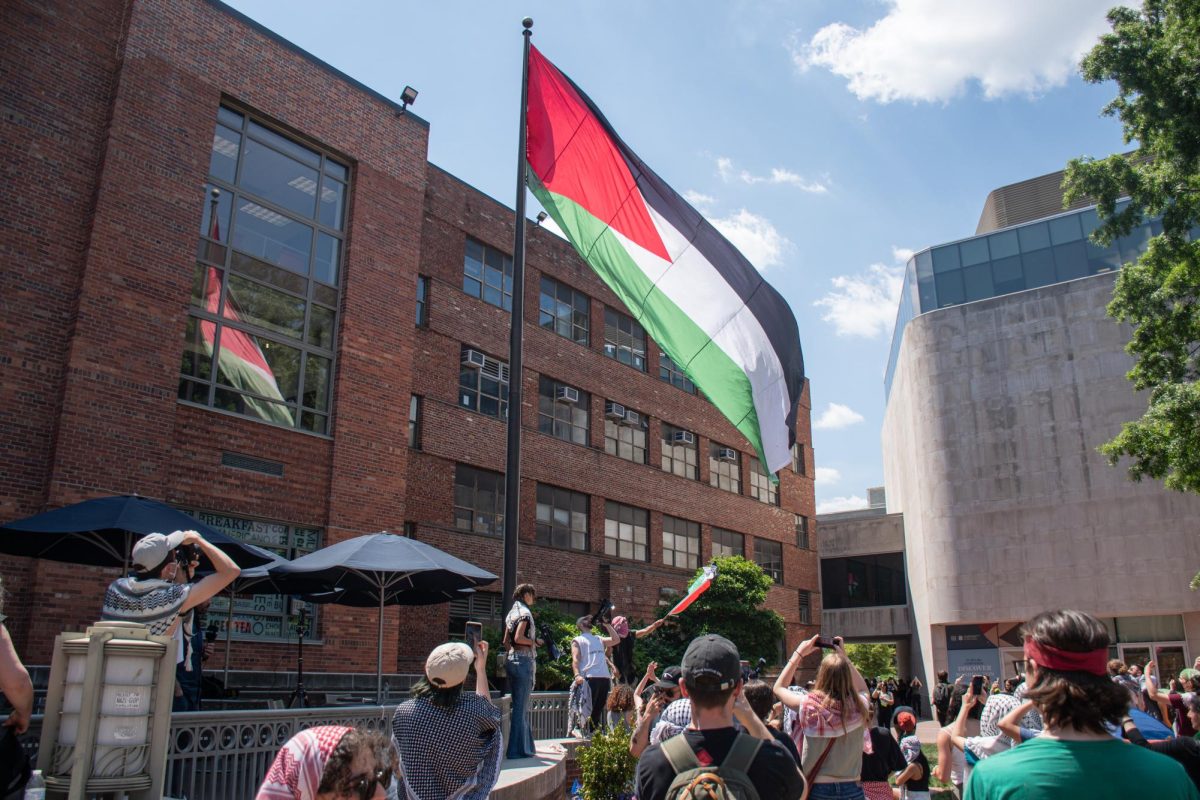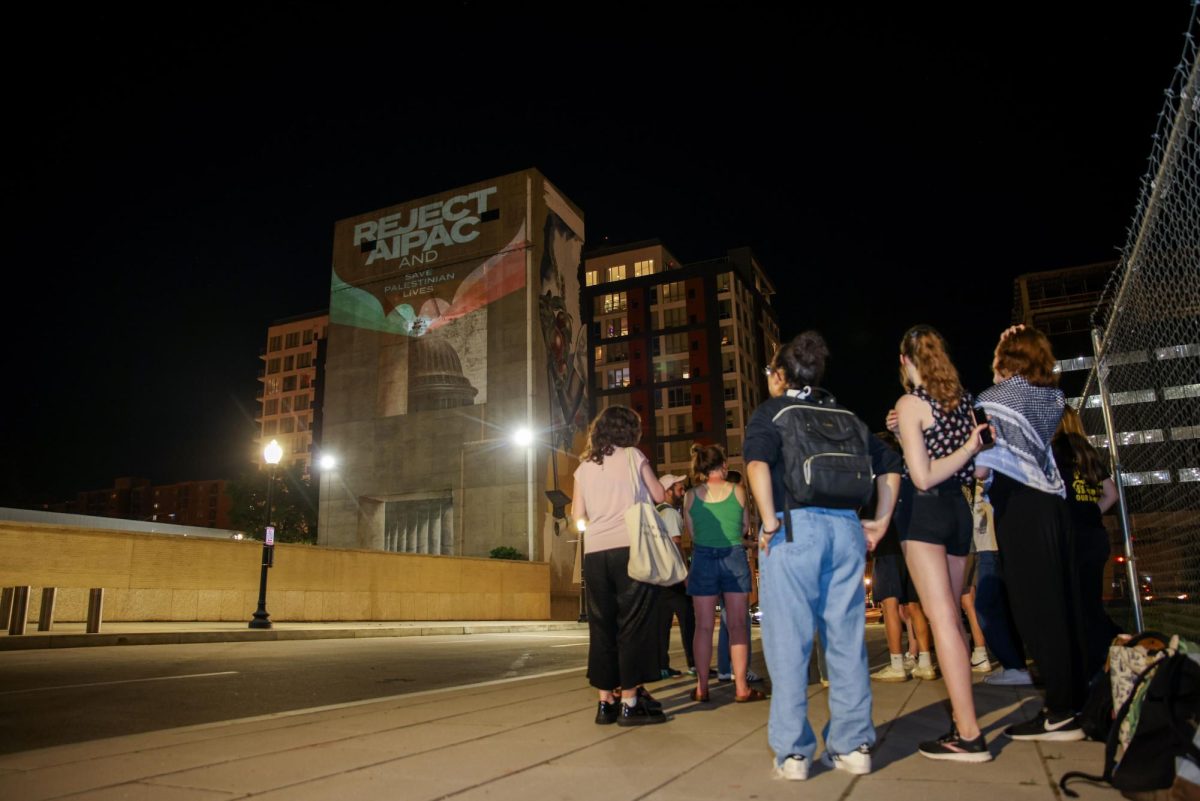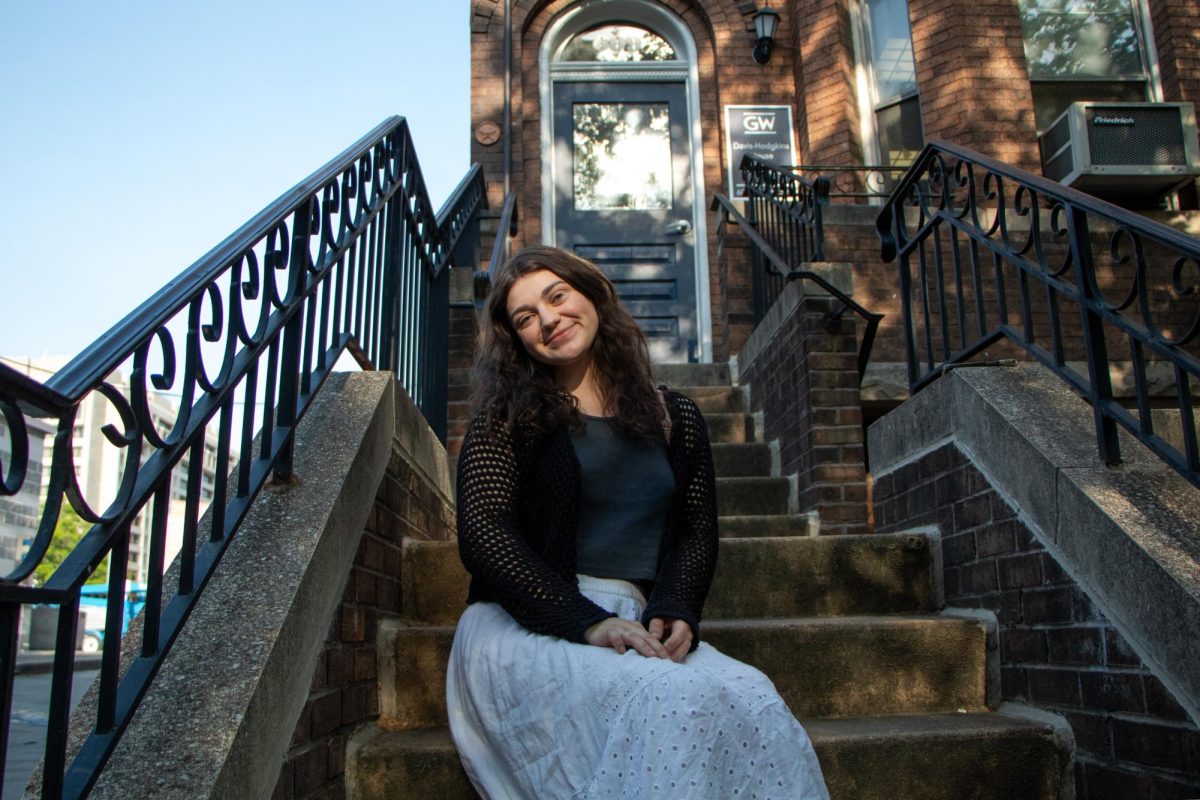
This post was written by staff writer Natalie Maher.
This year’s election and its process have been a spectacle not only for U.S. citizens but for people around the world.
The polling place at School Without Walls at Francis Stevens hosted three separate international groups throughout Tuesday, each observing and learning about how the American voting process took place.
Thomas Reind, the chairman of the Vienna City Council, joined 25 other Vienna council members who were observing voters cast their ballots Tuesday.
“The most important thing is that the state makes it as easy as possible that you can vote as a young person,” Reind said. “I know the U.S.A. is the country of all possibilities.”
Reind said some of the main differences between voting in the states versus voting in Vienna is the electronic voting and the early voting, which are not available voting options in Austria. The voting age is also different, as citizens as young as 16 years old are eligible to cast their vote.
All groups from abroad are welcome to observe and hear from volunteers about how the United States’ process works. But onlookers must remain far away enough from the booths and tables, so that it is not distracting to those voting, said one of the Francis Stevens’ volunteers, who can not be named as part of poll workers’ protocol.
Francis Stevens also hosted groups from Slovenia and Russia earlier in the day on Tuesday. The group from Slovenia, Melania Trump’s birthplace, visited as part of the Organization for Security and Cooperation In Europe, which is the world’s largest security-oriented intergovernmental organization.
And while these international observers do not have the opportunity to vote, they can look on as GW students do participate.
Natalie Meir, a senior at GW and first-time voter said it has become the norm for students to take part in the voting process.
“I think if you don’t vote here, then it’s kind of weird. Everyone has to vote,” she said.
And Kanika Amin, a masters student, said that students have a specifically important role in the voting process.
“At a time when education is so expensive, I think it’s really important that those who are receiving an education and have the ability to vote use their voice for those who can’t,” Amin said.







